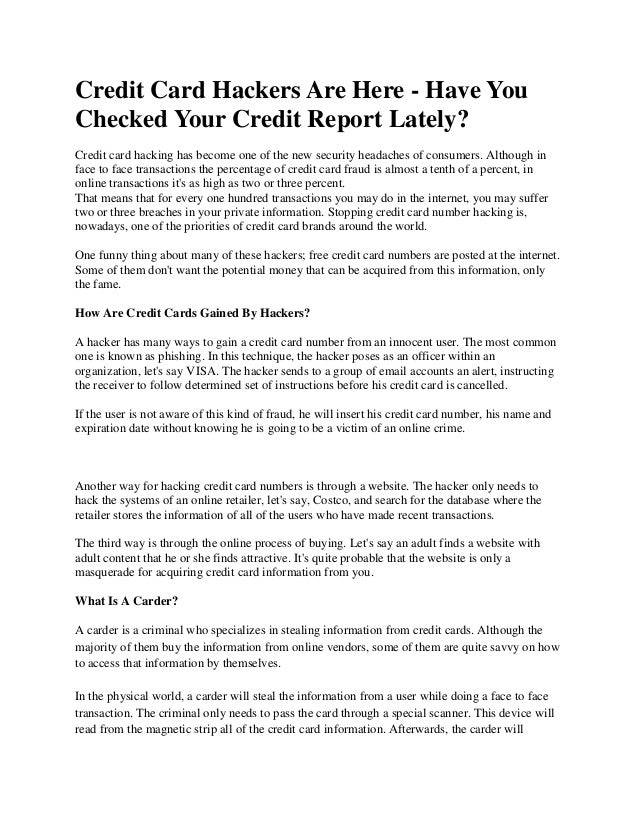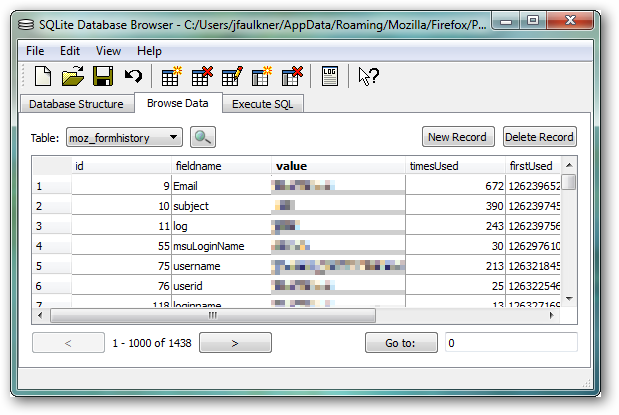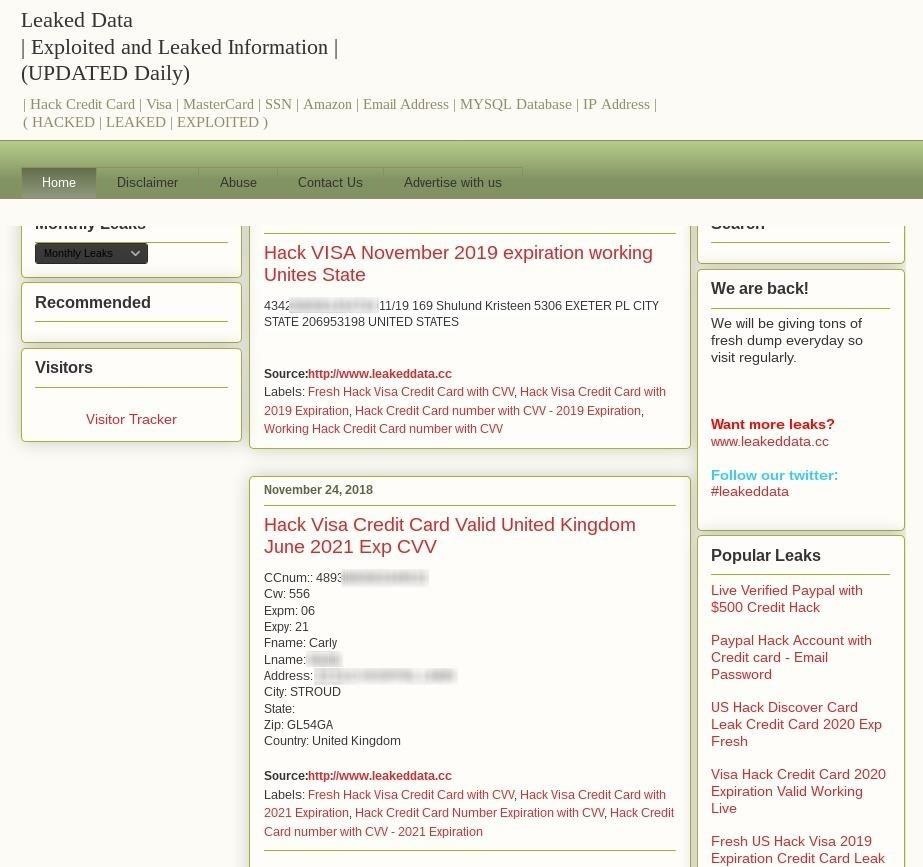The 2011 PlayStation Network outage was the result of an 'external intrusion' on Sony's PlayStation Network and Qriocity services, in which personal details from approximately 77 million accounts were compromised and prevented users of PlayStation 3 and PlayStation Portable consoles from accessing the service. Find the best credit cards for travel hacking that will help you meet your goals. I love the Barclay AAdvantage, Chase Sapphire, and Chase Marriott Rewards cards. Apply for your new credit card before any big expenses (existing travel, electronics, auto repairs, taxes, etc) and put all of your recurring bills or other expenses onto the new card. Find the best credit cards for travel hacking that will help you meet your goals. I love the Barclay AAdvantage, Chase Sapphire, and Chase Marriott Rewards cards. Apply for your new credit card before any big expenses (existing travel, electronics, auto repairs, taxes, etc) and put all of your recurring bills or other expenses onto the new card. In one of the biggest data breaches ever, a hacker gained access to more than 100 million Capital One customers' accounts and credit card applications earlier this year. The data taken in the hack shows that BriansClub acquired 1.7 million cards in 2015, 2.9 million in 2016, 4.9 million in 2017, 9.2 million in 2018, and 7.6 million in the first eight months of this year. Most of the pilfered data is composed of 'dumps,' the term card thieves use to describe data that's stored on the magnetic stripe of payment.
We think it's important for you to understand how we make money. It's pretty simple, actually. The offers for financial products you see on our platform come from companies who pay us. The money we make helps us give you access to free credit scores and reports and helps us create our other great tools and educational materials.
Compensation may factor into how and where products appear on our platform (and in what order). But since we generally make money when you find an offer you like and get, we try to show you offers we think are a good match for you. That's why we provide features like your Approval Odds and savings estimates.
Of course, the offers on our platform don't represent all financial products out there, but our goal is to show you as many great options as we can.
Whenever you hear news about a data breach, you may wonder exactly what hackers can do with your information. As it turns out, quite a lot.
Unfortunately, hackers work fast, too. According to May 2017 research by the Federal Trade Commission, it took only nine minutes before the hackers tried to access the information from a fake data breach.
If you’ve recently found out your data was compromised, then you should know the various ways identity thieves can use your information. This knowledge can prepare you for managing the effects of identity theft as soon as it happens.
What is identity theft?
Identity theft is the process of stealing your personal information — like your name, address, Social Security number and email address — and using it without your consent. Identity theft can happen to anyone, and the effects can be more than just an inconvenience.
Hackers may obtain your information in a data breach. But they may also be able to get your information if you enter it on a public computer or go to an unsecured website — and these are just some examples of how hackers can steal your information.

They can then use your personal information in a variety of ways for their own gain and at your expense.
Here are five ways hackers can take advantage of you and your information:
1. Your info could be used to open credit cards or take out loans
If hackers have your Social Security number, name, birthdate and address, they can open credit cards or apply for loans in your name.
“Hackers obtaining personal information, including Social Security numbers, can enable someone to pose as their victim and get credit or take out loans that they never pay back,” says Steven J.J. Weisman, a lawyer and author of “Identity Theft Alert: 10 Rules You Must Follow to Protect Yourself from America’s #1 Crime“.
2. Hackers can intercept your tax refund
If you’re like most people, you’re excited to get your tax refund. But sadly, hackers can intercept your tax refund by filing a fake tax return, using your Social Security number, birthdate and name.
Consumers who wait until the last minute to file may be more vulnerable. You’d likely only find out once you file your tax return and it gets rejected.
To help prevent this, the IRS recommends the following precautions:
- Always use security software with firewall and anti-virus protections. Use strong passwords.
- Learn to recognize and avoid phishing emails, threatening calls and texts from thieves posing as legitimate organizations such as your bank, credit card companies and even the IRS.
- Don’t click on links or download attachments from unknown or suspicious emails.
- Protect your personal data. Don’t routinely carry your Social Security card, and make sure your tax records are secure.
3. Your info can be used to cover medical treatment
People who steal your info aren’t just using it to buy lavish items. They can also use it to receive medical treatment by using your Social Security number and health insurance account numbers.
“In most cases, (identity thieves) use your same address, phone number… everything. Their goal is to get treatment and/or medications, and then they are gone, leaving very little time for them to be found out,” says Justin Lavelle, chief communications officer at background checking service BeenVerified.com.
In fact, according to research from Michigan State University, there were nearly 1,800 incidents of medical data breaches with patients’ information from October 2009 to December 2016.
Hackers can receive treatments, prescriptions and more by using your benefits. In addition to increased expenses for you, this can also put your own health at risk as the thief’s medical information will now be mixed up with yours.
Be sure to thoroughly review your medical bills and insurance statements as these may show signs of identity theft. You can check if the claim description matches the care you received.
If you see a discrepancy, call your health provider to report it.
Also make a habit of regularly checking your credit reports to check for delinquent (unpaid) medical bills on your credit reports.
4. Hackers can take flight with your airline miles
Using your email and passwords, hackers can get access to your airline miles to book trips or even redeem for cash.
“Airline miles can be converted to cash as easily as going to websites that buy miles,” Lavelle says.
To help prevent this, use a different password than the one you have on other accounts, and keep track of your mile activity regularly.
5. Your info could be used to open utility accounts
Hack Credit Card Software
According to the Federal Trade Commission (FTC), 13% of fraud incidents in 2016 occurred with phone and utility accounts.
In these cases, hackers may have opened an account with an electric, gas or cellphone company by using a stolen Social Security number. They then can run up tabs on the account, which is under your name, without you knowing.

There’s another scam to be aware of as well. Identity thieves can call you and pretend to be the utility company, threatening to turn off your electricity if you don’t pay up. However, these fraudsters are just trying to steal your money.
If your utility company is asking you to pay up, make sure you’re talking to the real deal and verify your repayment status.
You can do this by checking the utility company’s phone number and also checking your online account to verify your status.
How can you prevent identity theft?
While you can’t prevent a big data breach or ever fully protect yourself against identity theft, there are some measures you can take to make yourself less vulnerable. Here are some quick tips:

- Make sure you have a strong password that has many characters (including a mix of lower- and upper-case letters, numbers and symbols) and has no personally identifiable information or dictionary words.
- When you’re online, make sure the sites you visit are secure. The URL will usually have a lock in the left-hand corner and start with “https”.
- Enable two-factor authentication, so you’ll need to enter a code from your phone to access your accounts.
- Check your financial transactions often, and keep tabs on your credit reports to look for any changes.
Credit Karma has also created another way to help you detect identity theft.
With the ID monitoring feature, you can use your email address to search for any accounts that are in any public data breaches. If your information has been exposed in a breach, we’ll let you know some tips and tools to help you take the right next steps.
We’ll also continue to monitor your credit for free.
What’s next
There’s no shortage of ways hackers can use your information, and they seem to be getting ever more creative.
If you’re a victim of identity theft, you can follow the steps provided by the FTC to help you get through it. You can also submit a complaint through the FTC.
Hack Credit Card On Irc 401

Of course, there are no foolproof methods to preventing identity theft. But taking precautions and catching signs of identity theft as early as possible can help immensely.
Comments are closed.